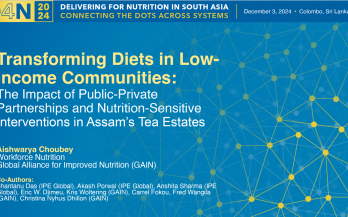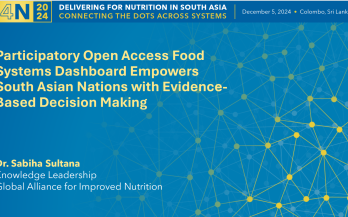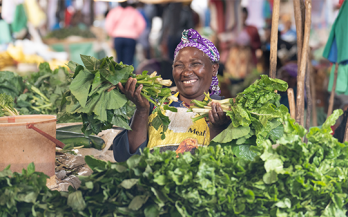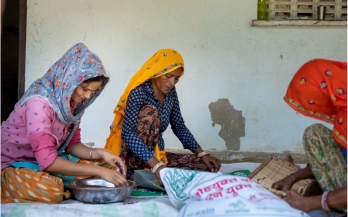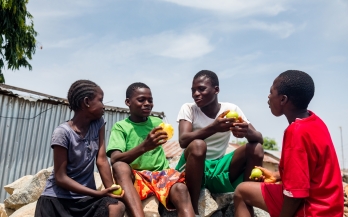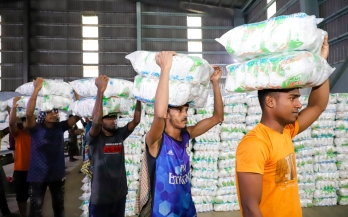Transforming Diets in Low Income Communities_The Impact of PPPs& Nutrition-Sensitive Interventions
Participatory Open Access Food Systems Dashboard Empowers South
GAIN, CIMMYT, FAO and the US State Department to discussed The Vision for Adapted Crops and Soils (VACS), drawing on their shared knowledge and work in demand creation around healthier and more sustainable diets. Read the transcript and watch now.
Reducing food waste represents an important opportunity for shrinking the environmental footprint of food systems and supporting planetary health – and if this waste can be repurposed into nutritious foods, then it could also be a benefit for nutrition and human health. To understand the opportunities for repurposing waste products or byproducts into foods, this paper presents a rapid analysis based on desk research and key informant interviews. The analysis considers byproducts across four categories: fruit and vegetable residues, seeds and seed residues, other plant byproducts, and animal byproducts. The assessment considered availability, potential uses, consumer acceptability, food safety, nutritional quality, and feasibility.
Micro, small, and medium-sized enterprises (MSMEs) play a pivotal role in addressing Nigeria’s nutrition challenges, given their significant contribution to the local food system and economy. MSMEs are essential drivers of innovation, employment, and food production, helping make nutritious foods more accessible to underserved populations. However, MSMEs face an array of systemic barriers that hinder their growth and ability to scale sustainable nutrition solutions, such as high costs, complex regulations, and restricted access to finance. To bring together policymakers and the private sector to discuss these challenges, a Nutrition Policy Dialogue was convened by GAIN and the Scaling Up Nutrition Business Network (SBN) in Abuja on October 31, 2024. Attendees included the Regional and State Hub leads for SBN in Nigeria as well as representatives from businesses, government departments, academia, civil-society organisations, and other key stakeholders.
Through a keynote address, a panel discussion, and two breakout groups, the meeting highlighted key challenges, including regulatory overlaps, limited financial access, and policy inconsistencies affecting MSMEs. It also proposed actionable recommendations such as harmonising regulatory frameworks, developing cluster-based financing models, and enhancing financial literacy. Finally, it served to foster stakeholder commitments to training programs, advocacy efforts, and implementation of innovative financing solutions.
Millions of people around the world struggle to afford minimally nutritious diets, and social protection is critical for making healthy diets accessible. GAIN supports governments and other key stakeholders to accelerate system innovations that can make social protection investments work harder for the nutrition of the most vulnerable.
Through partnerships, policy advocacy, and programmes, GAIN is working in seven countries to make social protection systems more nutrition-sensitive and better equipped to combat systemic and intergenerational inequities that limit the reach of vital services.
Workforce Nutrition Programmes (WNPs) can improve the health of workers, but with
mixed results for a business case—which is crucial to their sustainability. This paper thus
explores impact pathways and metrics used to assess the business benefits of WNPs, as
well as the factors that influence the business case, with the aim of informing future
interventions and research.
Food systems are a foundation of human and planetary well-being and central to achieving the Sustainable Development Goals. Yet they also contribute to ill health, inequity, environmental degradation, and greenhouse gas emissions. These challenges demand urgent food systems transformation. Such a transformation requires understanding the status of food systems across their diverse functions.
The benefits of trade are often viewed in economic terms, but its human impact — on malnutrition in particular — cannot be ignored. Malnutrition stunts development, weakens immunity, and deteriorates bone and muscle health.
N3F is an open-ended debt fund designed to invest in small and medium enterprises (SMEs) focused on improving nutrition in Sub-Saharan Africa. Its innovative blended structure combines public and private donor funds to attract capital from private investors.
